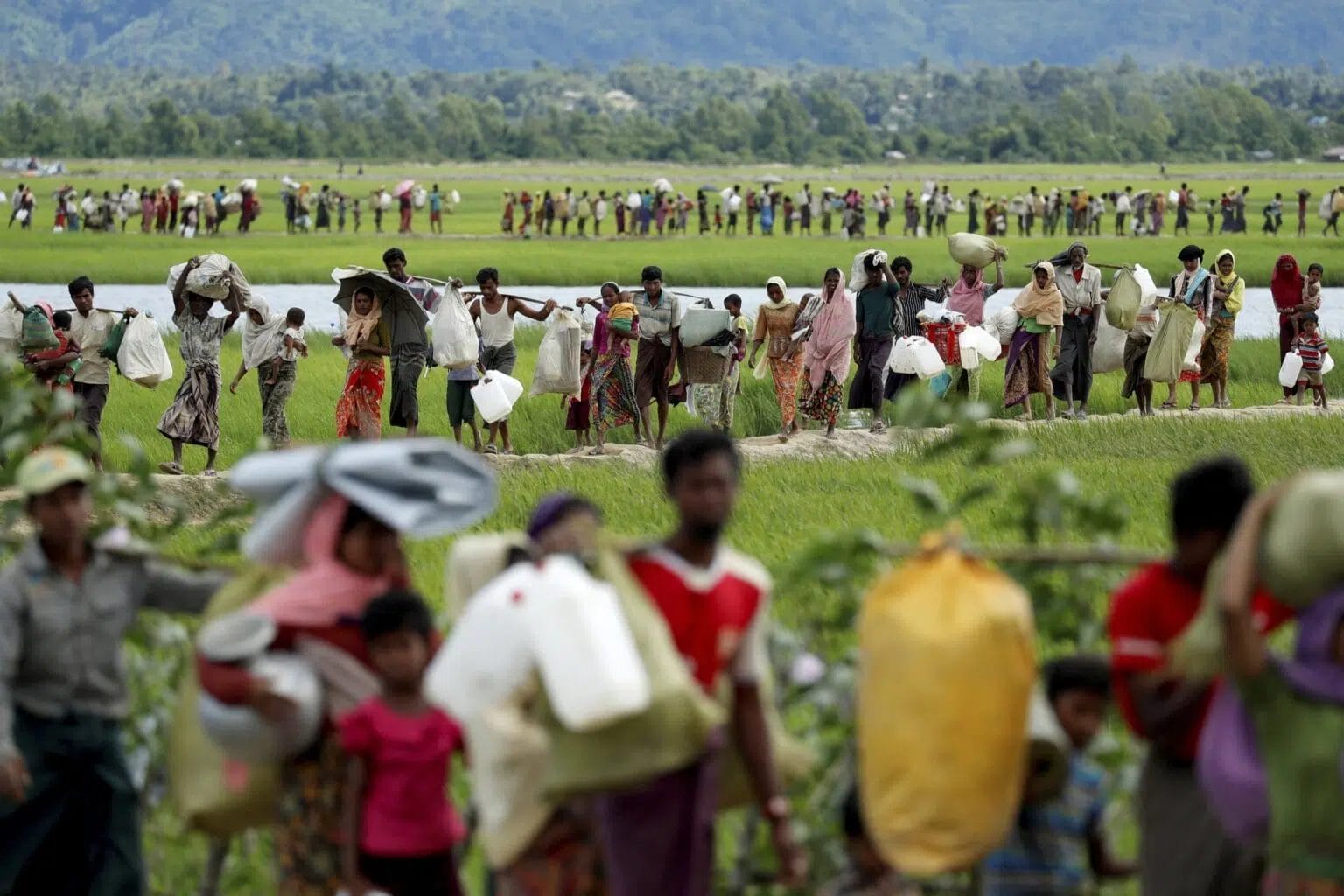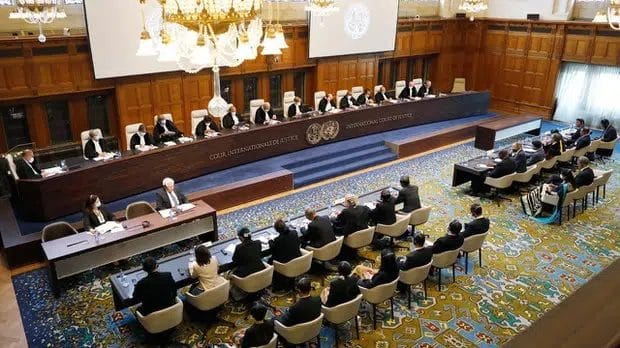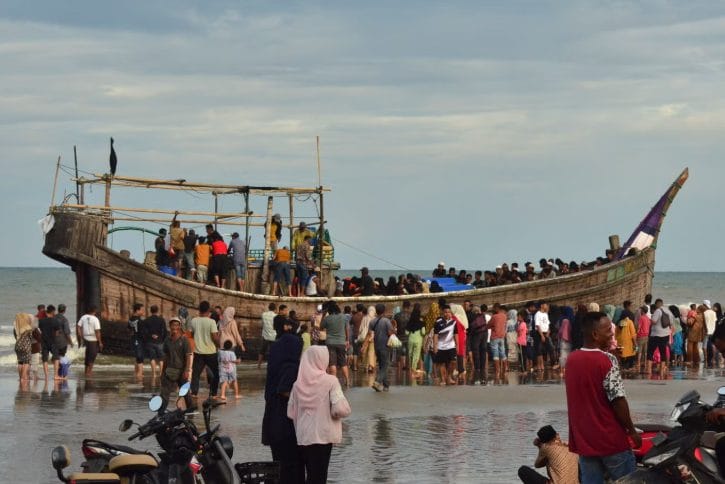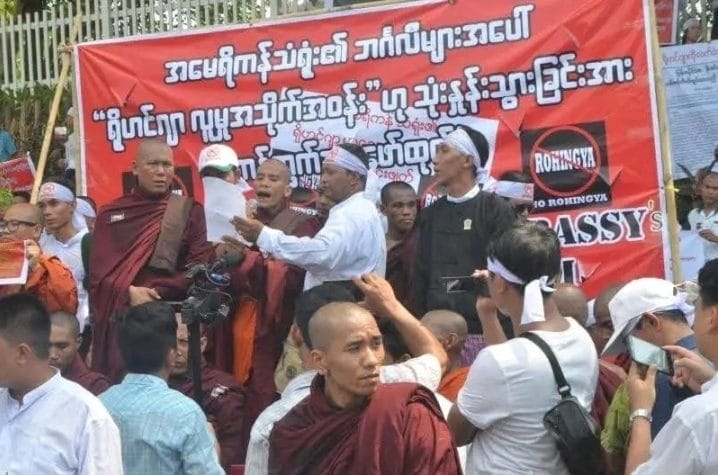Amid international crises and humanitarian issues, Bangladesh faces a direct challenge in planning the repatriation of more than 180,000 Rohingya refugees to Arakan State in Myanmar. Despite formal coordination with the Myanmar government, there is currently no coordination with the Arakan Army, which effectively controls most Rohingya cities and towns. The fundamental question in this crisis is: How can such a large number of refugees be repatriated without the consent or participation of the entity that militarily controls the area to which they are supposed to return? Without coordination and arrangements?
Based on the sources and reports circulating about this problem, there are several aspects that the international community should be aware of. The Arakan Army has been in control of the ground since the escalation of the conflict in northern Arakan State. The central government has effectively been absent from several areas, while the Arakan Army has expanded its administrative and military influence. On the other hand, refugees lack trust in the central government. Most Rohingya who fled violence, persecution, and ethnic cleansing in 2017 feel insecure and lack organisational confidence in the Myanmar authorities or their supporters.
They view the Arakan Army as a more viable option for ensuring return, or at least as a party whose approval is required. Furthermore, the current negotiations ignore reality. We conclude from this that an agreement with the Myanmar government alone, without coordination with the forces controlling the ground, means that refugees will return to an area with an unknown fate, reintroducing the threat of violence and displacement.
Based on the above and available sources, I believe the Arakan Army must be recognised as a key party in the process. Bangladesh must establish formal channels of communication, possibly through a third party (such as China or the United Nations), and agree with the Arakan Army on return arrangements, ensuring its commitment to protecting returning civilians. Furthermore, the return should be linked to international guarantees on the ground, such as the deployment of UN or Red Crescent monitors, to ensure that the rights of returnees are not violated. This could encourage the Arakan Army to cooperate and relieve the central government of the burden of full security.
An important aspect is to invest in the Rohingya themselves as a bridge, where leaders from the Rohingya community can be involved in negotiations, especially since some of them have direct connections with the Arakan Army leadership. This could build local trust and pave the way for a gradual return.
However, the important question, given this crisis, is whether it is realistic to repatriate 180,000 refugees without coordination with the Arakan Army?
Given all the circumstances surrounding this issue, it is unrealistic to repatriate 180,000 refugees without coordination with the Arakan Army, as those on the ground are the ones who effectively control the safety and rights of these migrants. The lack of coordination will only further complicate and possibly lead to the failure of the repatriation process altogether.
The question we must all consider is: Do we repatriate refugees at any cost? Or do we repatriate them with dignity, safety, and guaranteed rights?
To achieve the safe, voluntary, and sustainable return of 180,000 Rohingya refugees from Bangladesh to Arakan State, bilateral coordination between Bangladesh and the Myanmar government is not sufficient. International law must be activated, and global institutions must take their responsibilities seriously. International law obliges states not to return refugees to places where they may face persecution or danger. This is known as the principle of non-refoulement, enshrined in the 1951 Geneva Convention. Any repatriation without ensuring the safety of the Rohingya and without international oversight would be a violation of this principle, especially given that Arakan State continues to suffer from armed conflict and political instability.
The Role of the United Nations: The Office of the High Commissioner for Refugees (UNHCR) bears the responsibility to ensure that returns are voluntary, safe, and dignified. The United Nations can play a mediating role between Bangladesh and the Arakan Army, especially if it recognises the reality of the army’s territorial control. The United Nations is also required to deploy permanent monitoring missions in the areas where Rohingya return to ensure that their rights are not violated and to document any immediate violations.
The Role of the Security Council: Although the Security Council has not taken a decisive position since the 2017 crisis due to China’s veto, it remains the only body capable of imposing sanctions or other measures on the Myanmar government if it prevents the return or violates the rights of the Rohingya. It can also issue binding resolutions demanding that all parties, including the Arakan Army, facilitate safe return. It can also establish an independent international commission of inquiry or, if necessary, a peacekeeping mission.
If Bangladesh continues solely on the path of bilateral negotiations, it will weaken its position and risk returning refugees to an unsafe area. However, if it mobilises the international community, it can strengthen its negotiating position. The Arakan Army can be engaged as a de facto entity through indirect UN pressure and the establishment of an international legal framework that makes the return of the Rohingya part of a broader political process.
In light of all these crises, does Bangladesh want to go down in history as the country that forcibly expelled the Rohingya? Or as a country that led a successful, internationally supported humanitarian return operation? I believe that coordination with Myanmar is not enough, and international law, the United Nations, and the Security Council must be brought into the heart of this process.

















